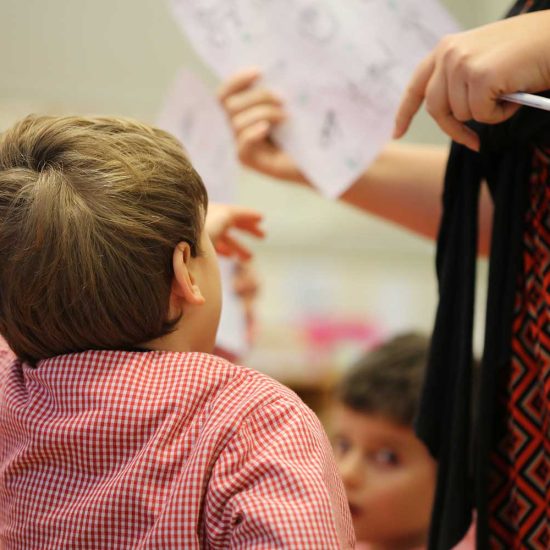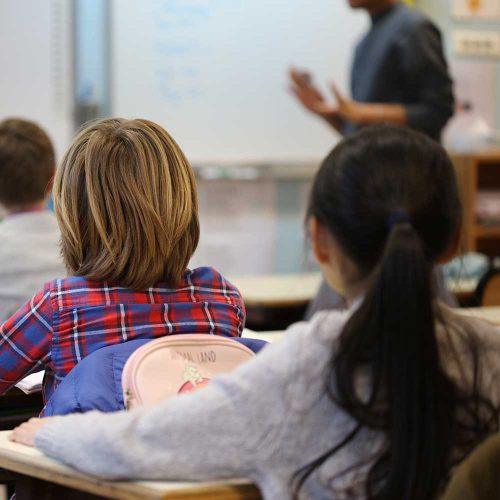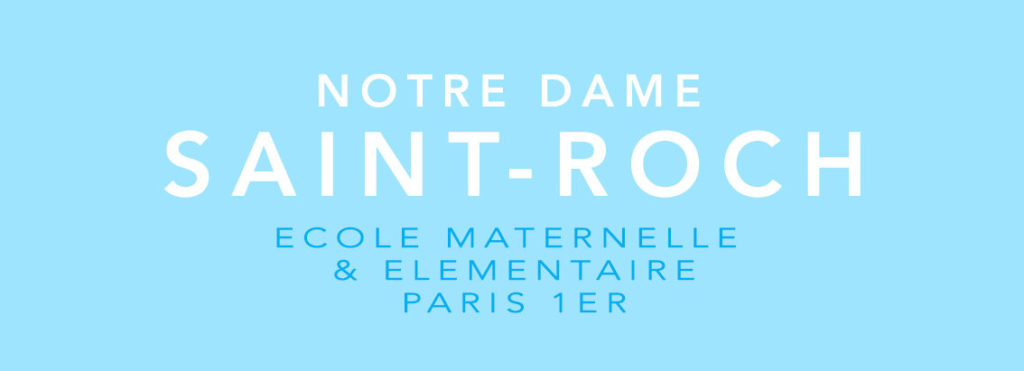OUR PROJECT
OUR VISION
The philosophy and spirit of Notre-Dame Saint-Roch School is oriented towards a global education that includes knowledge and values. To achieve this, we want to offer a school that educates as well as teaches.
As parents, you are the first educators of your children: the responsibility for educational training lies partly with the school, but it can only complement what each child receives at home. Your active participation is essential to create a real harmony between family education and school education. Naturally, this creates a relationship of trust and dialogue between the educational team and you as parents.
Our project is to be a school that makes all its pupils succeed, without forgetting that there are diverse successes and diverse paths to fulfilment.
We take into account and scrupulously respect the official instructions and the programs established by the National Education, and within this framework our project is to :
to offer your child, throughout his or her schooling in our establishment, knowledge and skills,
to act so that the development of their intellectual capacities allows them to improve their interpersonal skills.

"Our students are the future God has entrusted to us"
(Remarks of Monsignor Lustiger to the heads of schools in Paris at the dawn of the third millennium).
OUR OBJECTIVES
in cycle 1

The first learning cycle, our goal is for our school to be a true :
- a place of fulfilment: so that each child is happy to come to school and wants to grow and acquire autonomy while finding a harmonious
- a place of discovery: awakening curiosity, manipulations, etc.
- a place of learning: by respecting each person's pace, accepting the right to make mistakes, developing a sense of effort
- a place for socialisation: learning to express oneself but also to listen to others and to respect others with their differences
The Aides-Maternelles (ASEM) provide effective assistance in working in workshops and help each child to learn to be independentt
In the basic learning cycle, our aim is for each pupil to :
- to encourage and develop the desire to come to school, to learn with others and to have a common experience
- master the written and spoken languag
- to set up language sequences and discovery of the written word
- to discover reading in the preparatory course
- prioritise reading comprehension and reading for pleasure with 'library corners' in each classroom
- to implement the basic principles of "reading, speaking and writing" and the mastery of mathematical tools by organising workshops, manipulating and encouraging interactivity
- to encourage motor, sensory and cultural development through physical expression, music and various cultural outings
- to begin learning English as a language of international communication
- to begin learning English as a language of international communication
- learn about ICT (Information and Communication Technologies for Education)
- to learn about citizenship and the importance of living in a community
In cycle 2

IN cycle 3

In the in-depth cycle, our objective is for each student to communicate, read, write, create and become a citizen:
- Moving from oral to written communication
to make people want to read by offering a varied choice of books, by going to the library, by explaining the choice of book, by being a reader for the little ones
to encourage writing by creating a newspaper about cultural activities or outings and by using computers
encourage self-expression by participating in group debates, presenting and critiquing presentations, taking part in competitions or ‘outside’ events
- Opening up to the world
reading a children’s newspaper
cultural outings: visits to museums, theatres, concerts, etc.
creative workshops
- Respecting values and rules of living together
respect for others: at school, in the canteen, on transport
respect for collective material
respect of the given word
politeness: speaking and respecting others’ words
reading and debates on the Declaration of Human Rights and the Rights of the Child
- Discovering the institutions :
- visits to the Town Hall, the National Assembly and the Senate
- Learning to live in a community :
- transplanted classes
THE MEANS USED
In order to achieve these objectives and to succeed in the mission of giving your child a complete education in accordance with our values, we have set up a pedagogical organisation to respond to the diversity of the students.
Within each class, the teacher in charge proposes :
- differentiated teaching: either support for pupils who need more educational attention, or in-depth teaching for those who need to go further in the programme. The teachers take advantage of the time when their class is in half-groups (physical and sports education classes, computer classes, etc.) to set up this personalised work.
- tutoring or mutual aid within each class, where pupils are co-actors in their learning.
- an inter-class tutorial where the older children read stories to the younger ones: this is rewarding for the older children and encourages the younger ones to read
- inter-class tutoring planned during the consultations.

Evaluation
We are aware that it is important for you, as parents, to have a clear and regular overview of the progress of your children’s work. To this end, we have set up a personalised follow-up during the school year. This is structured as follows:
IN cycle 1

We start in the kindergarten section, where a personal follow-up is set up for your child.
Your child receives an evaluation booklet at the end of the year which shows what he/she has learned and what he/she still needs to learn or is learning.
IN cycles 2 et 3

The graded assessment is implemented, which allows your children to be assessed according to the objective of the common base of knowledge.
These graded assessments are included in the report cards which will be given to you every six weeks and before each school holiday.
The need for an alternative approach to measuring your child’s personal development is appreciated and assessed in the skills booklet given to families.
Our experience has shown us that if a child’s success is visible through his good grades and his motivation to go to school, it can only really be measured at the end of his physical, intellectual and spiritual development. Their capacity for adaptability and openness to the world will enable them to become the citizens of tomorrow with confidence.
In educating the young people entrusted to us in the Truth, Beauty, Goodness and Justice, it is the light of Jesus Christ that illuminates the character of our school.
This is the project that we want to live in our school.
